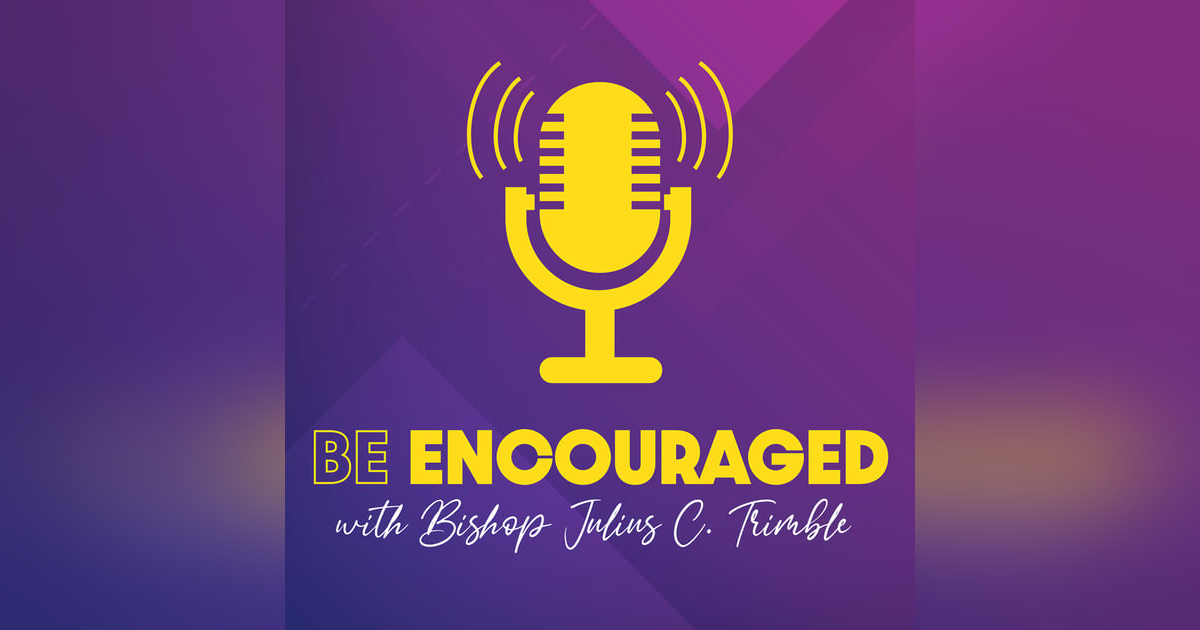Reflections on Retirement: Encouraging Words from Bishop Julius Trimble on Faith, Love, and Service

Bishop Julius C. Trimble is the Resident Bishop of the Indiana Area of the United Methodist Church.
Bishop Trimble has the personal mission to encourage all people with the love of Jesus Christ to rise to their highest potential. It is his commitment to his personal mission that led Bishop Trimble to create the “To Be Encouraged” Podcast along with co-host Rev.Dr. Brad Miller.
Bishop Trimble says, “I am compelled by Jesus to share with you an encouraging word or two about Jesus, theology, the Bible, the pandemic, the environment, racism, voting rights, human sexuality, and the state of the United Methodist Church.”
To Be Encouraged with Bishop Julius C. Trimble is to be published weekly and is available at www.tobeencouraged.com and all the podcast directories.
https://www.inumc.org/bishop/office-of-the-bishop/
**Episode 115: Reflections on Retirement: Encouraging Words from Bishop Julius Trimble on Faith, Love, and Service
Join us for an inspiring episode of *To Be Encouraged* as Rev. Dr. Brad Miller sits down with Bishop Julius C. Trimble to discuss his remarkable 16-year tenure as a bishop in the United Methodist Church, his thoughts on the denomination's future, and his upcoming transition out of the Episcopacy in the state of Indiana. This rich conversation provides heartfelt insights on the importance of love, preaching, and enduring faith in the face of challenges. Here are three key takeaways from the episode:
### 1. The Power of Love and Community
Bishop Julius C. Trimble emphasizes that the core of United Methodist preaching—and indeed his own ministry—rests on the twin pillars of love for God and love for one’s neighbor. This foundational belief has been the driving force behind his leadership, especially during times of societal unrest and personal discouragement. He reflects on the overwhelming support and prayers from church members, particularly following the tragic deaths of George Floyd and Trayvon Martin, underscoring the importance of collective encouragement and communal bonds in fostering resilience and hope.
### 2. Enduring Through Challenges
Rev. Dr. Brad Miller delves into how Bishop Trimble has managed moments of discouragement over his long career. Bishop Trimble speaks candidly about the difficulties faced by the United Methodist Church, including the impact of the pandemic and issues related to disaffiliation. His approach to overcoming these challenges involves drawing strength from personal faith, a robust support system, and the encouragement he receives from the community. He also acknowledges the evolving state of the church, highlighting the recent general conference’s positive steps toward inclusivity and the ongoing need to address mental health concerns within pastoral leadership.
### 3. A Vision for the Future
As Bishop Trimble prepares to step down, he shares his optimism for the future of the United Methodist Church under the leadership of Bishop Malone. He talks about the importance of cultivating joy and a vision for a brighter future, expressing his belief in the church’s enduring legacy of grace and service. Bishop Trimble encourages the community to continue looking for “glory sightings” or signs of God at work in their daily lives. He concludes the episode with a prayer, calling for kindness and hospitality to flourish in the world.
### Tune In
Don’t miss this episode of *To Be Encouraged* for a profound conversation that blends personal reflections with actionable insights, driven by Bishop Trimble’s enduring commitment to faith, love, and community. Join us as we explore the vital themes of leadership, change, and the power of shared belief in shaping a hopeful future.


